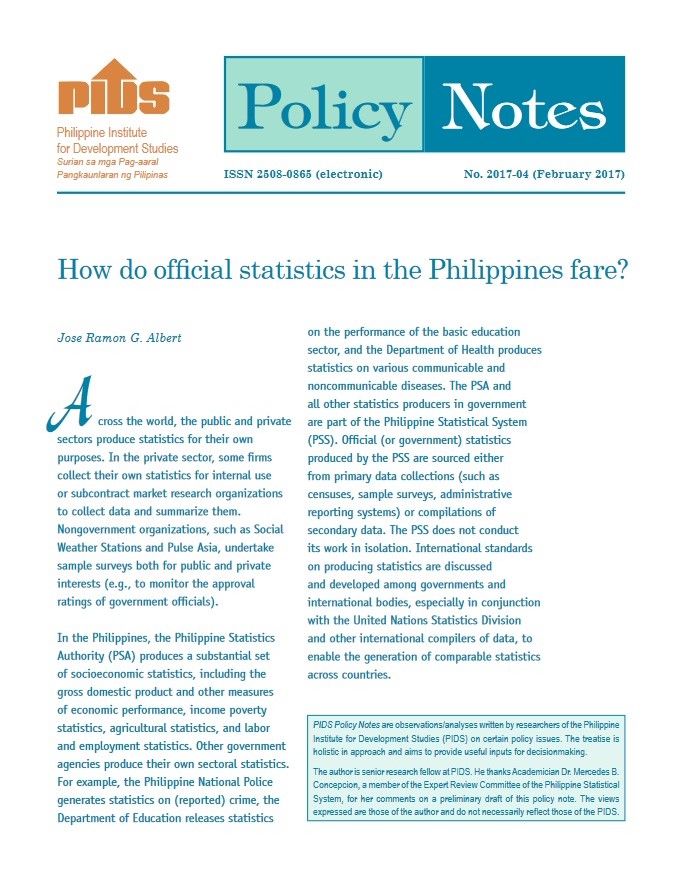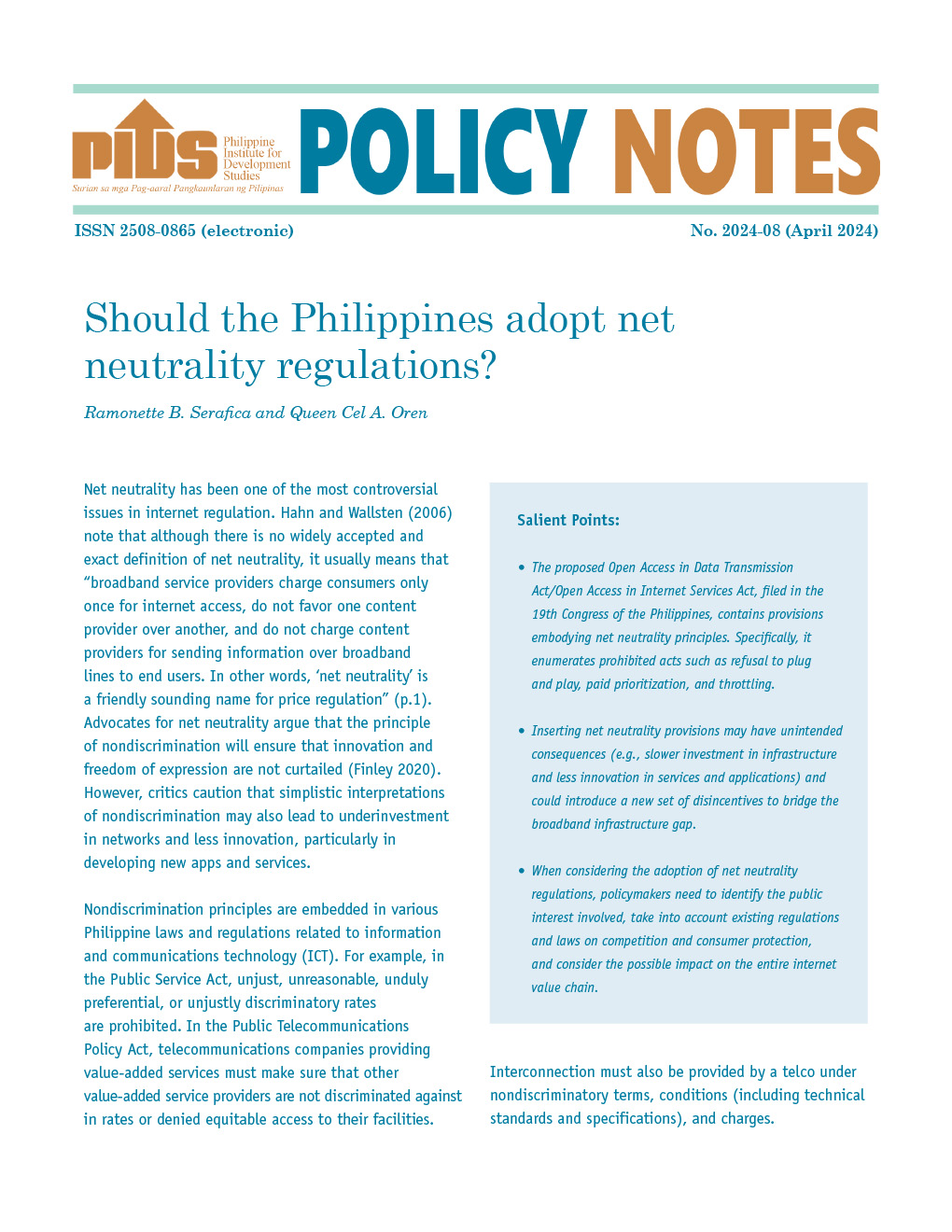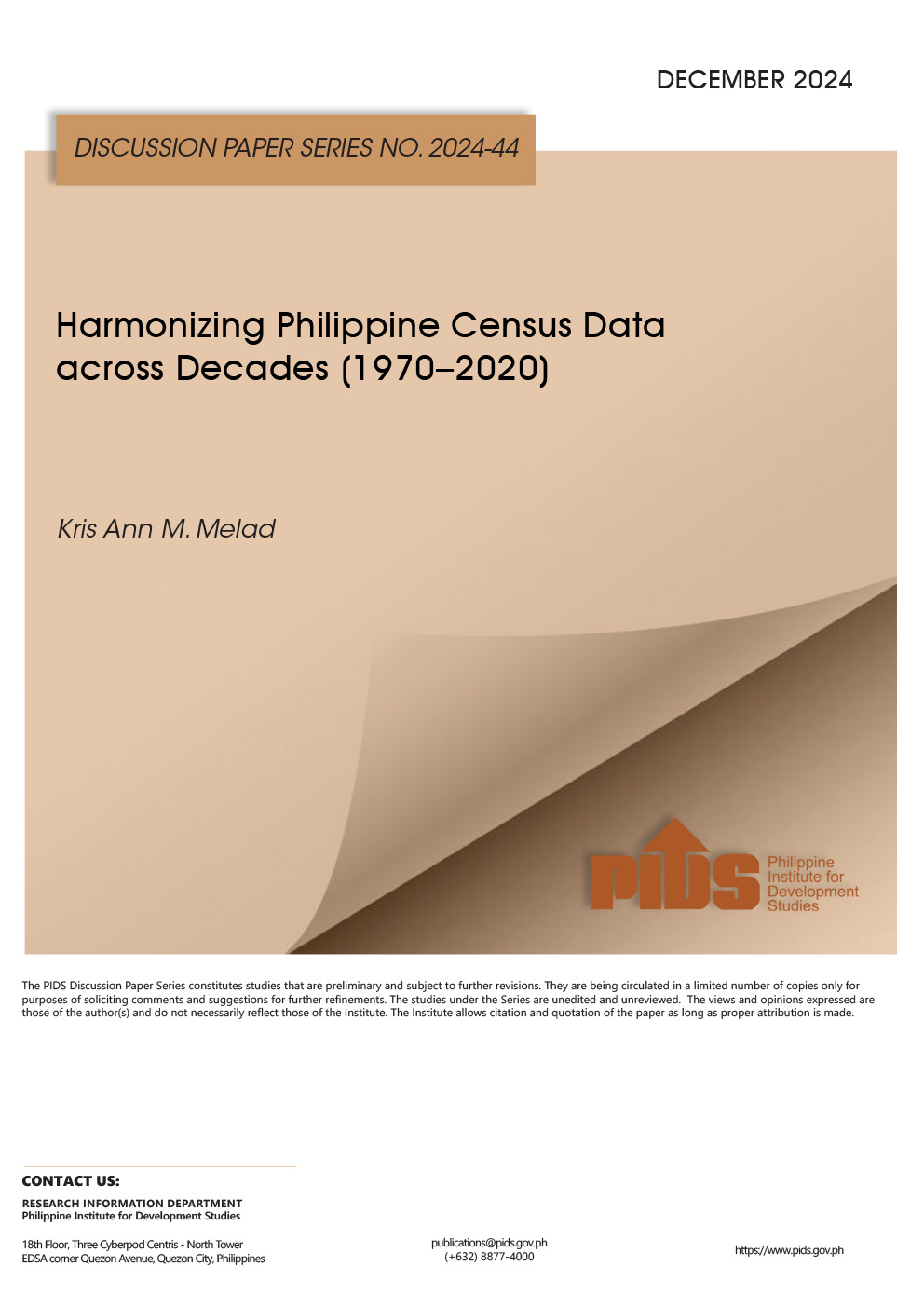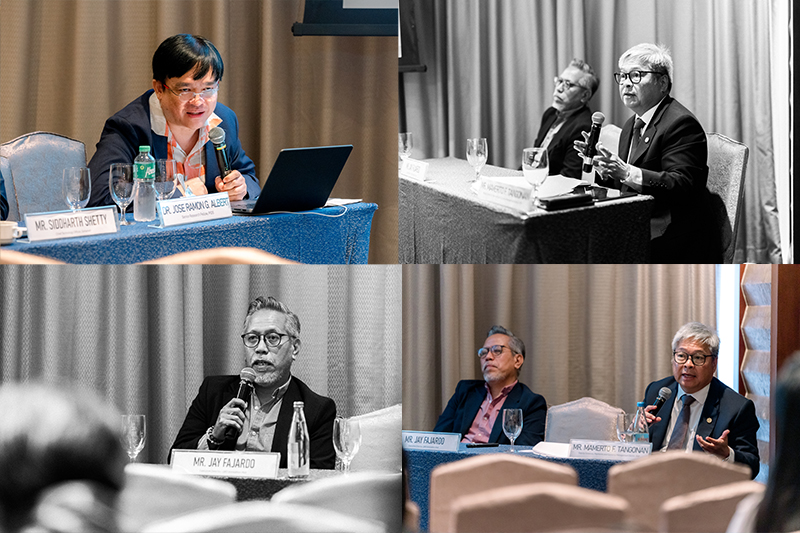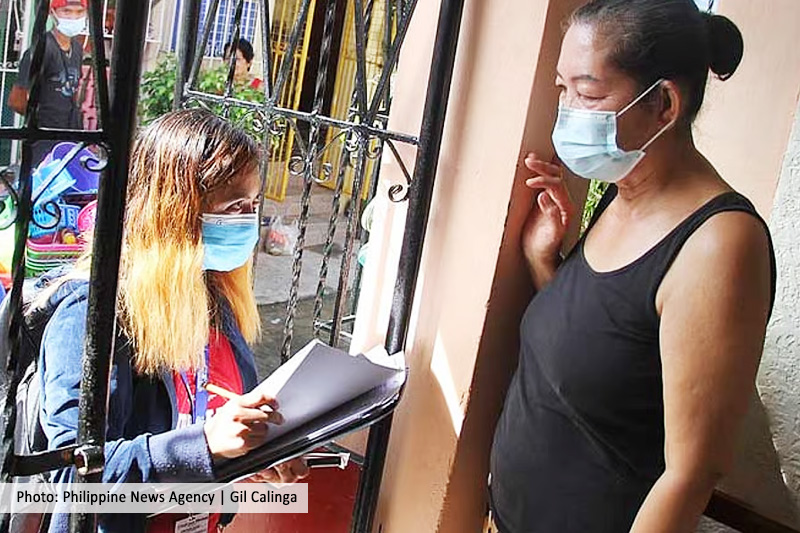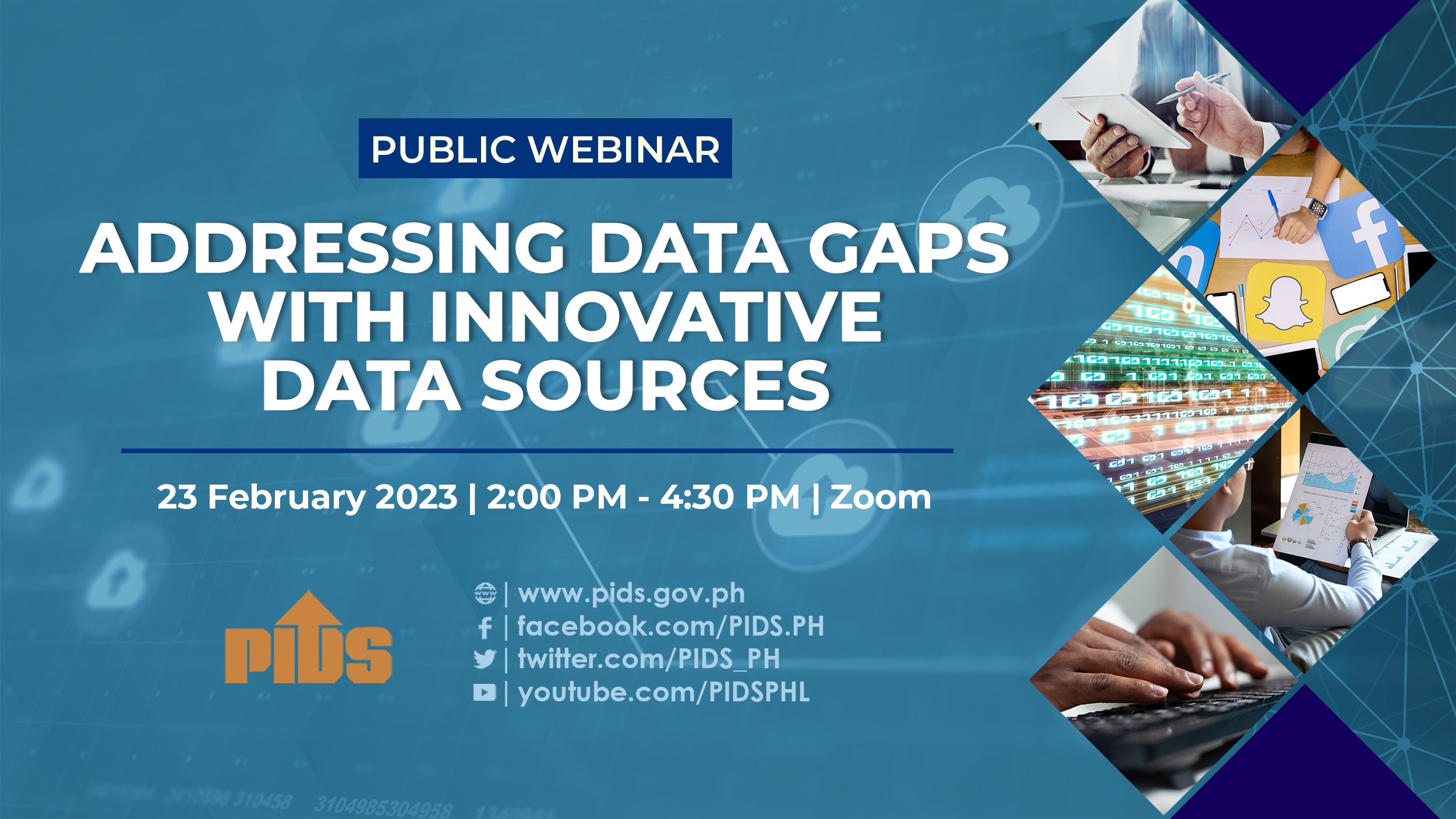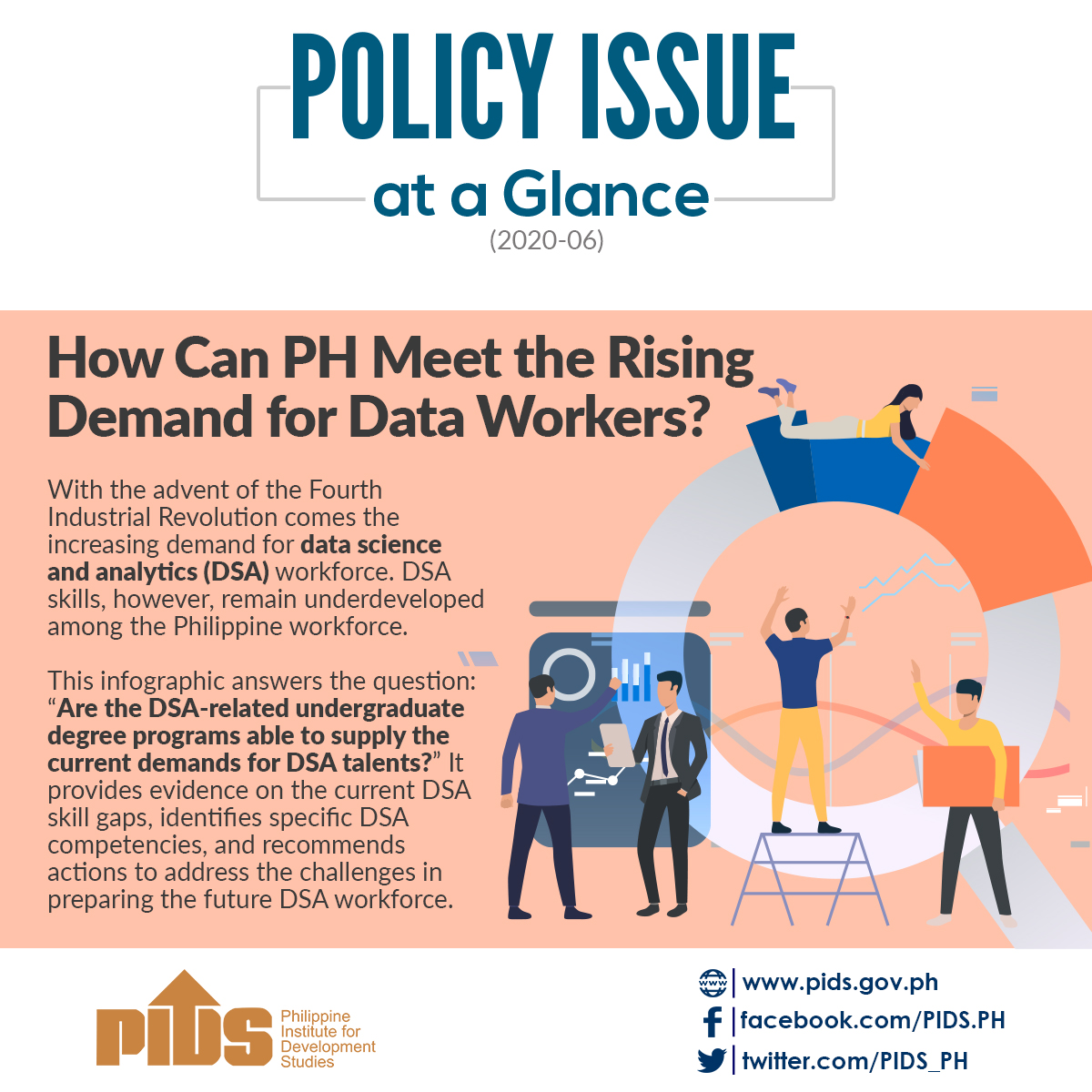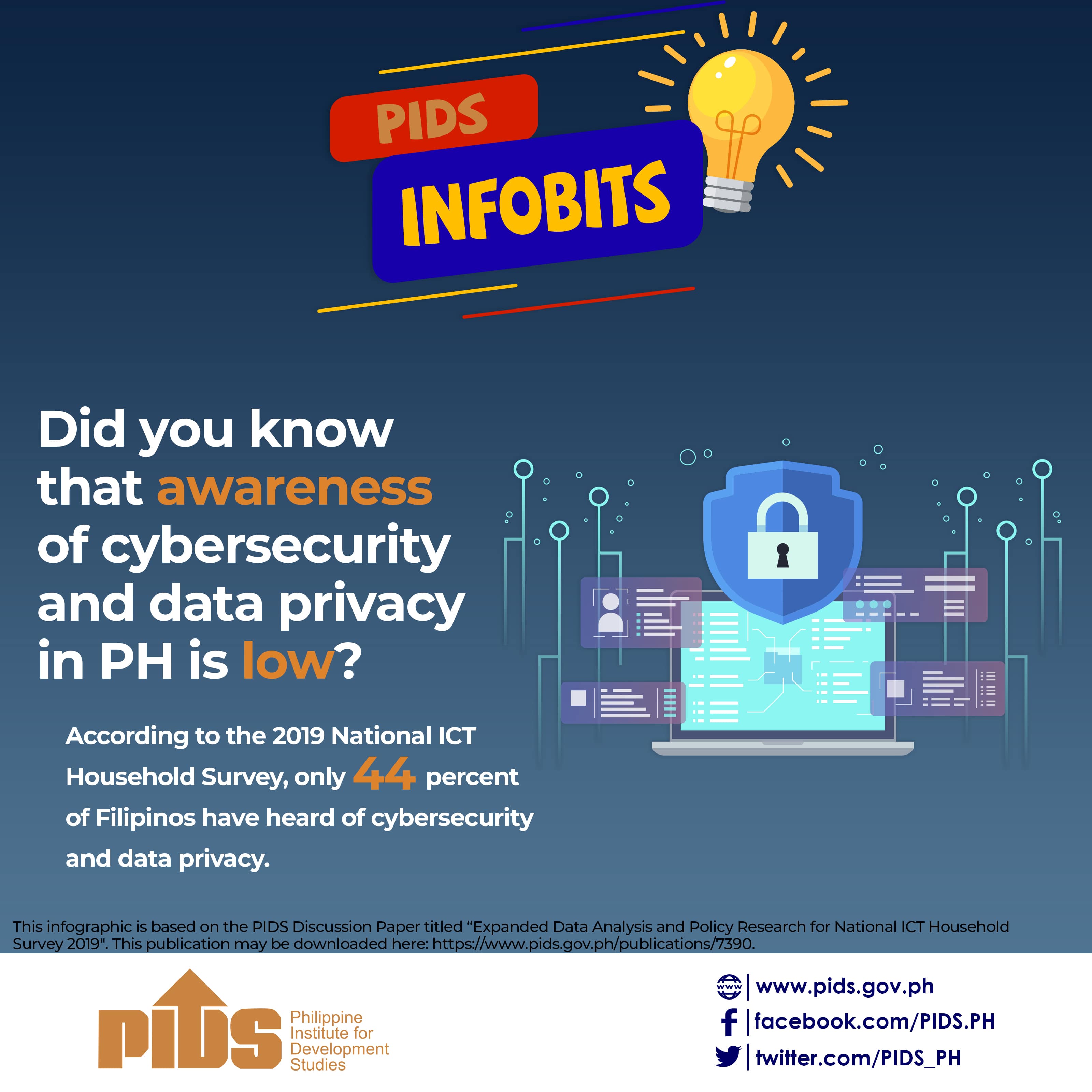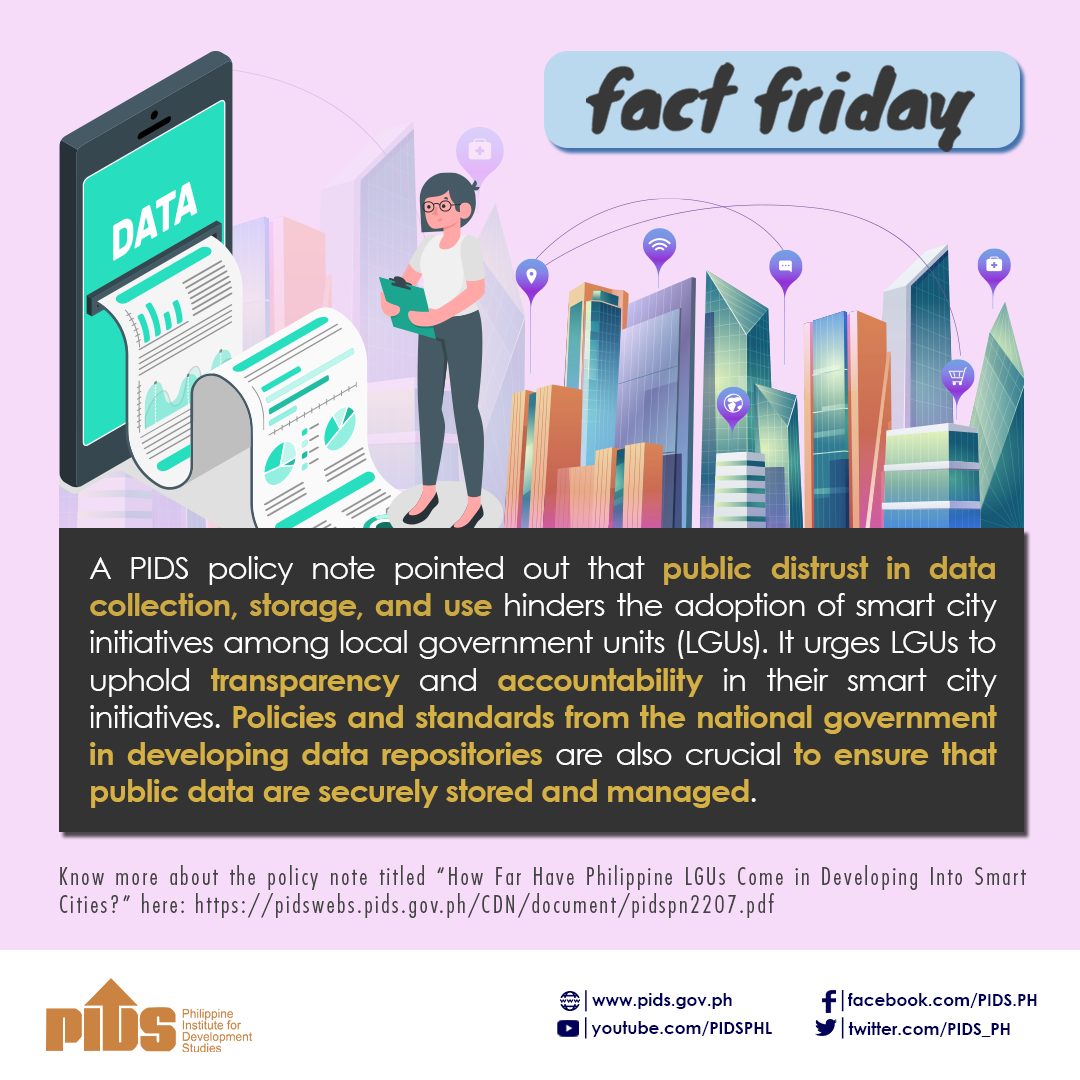
The Philippine Statistical System (PSS), though performing well according to international and local assessments, needs serious beefing up. Jose Ramon Albert, senior research fellow of state think tank Philippine Institute for Development Studies (PIDS), emphasized this in a policy note released by PIDS recently.
According to Albert, several important features of Republic Act (RA) 10625 have yet to be implemented, many of which are critical to the improvement of the PSS. The said law established the Philippine Statistics Authority (PSA) in 2013 to improve the country’s statistical system.
A better PSS hinges on developing better statistical capacities, which, in turn, partly rely on adequate funding. A study conducted by Romulo Virola, former secretary general of the National Statistical Coordination Board, took note of the near-inflation increases in PSA’s nominal budgets.
Albert gave several recommendations to improve the PSS apart from financing the full implementation of RA 10625.
First, he emphasized the need to ensure the independence of statistics from political interference. "The law, however, does not make explicit mention of separating statistical releases from political statements, nor are there currently any standards and guidelines on this," said Albert.
The social value of statistics cannot be understated. Statistics data allow leaders to make informed policy decisions. They also provide the public hard evidence to evaluate and monitor the social and economic changes happening around the country. It is important, therefore, to maintain a healthy level of independence between the PSS and the political domain.
Second, Albert emphasized "equal access to data produced by the PSA and other statistics producers".
Third, the technical committees within the PSS, Albert revealed, do not meet regularly. These committees function as a coordination tool and a feedback mechanism. Through them, statistics producers are able to receive feedback and advice from experts on surveys and population projections.
Fourth, the Philippine Statistical Research and Training Institute (PSRTI) should be given more support than it is currently receiving. The initial plans for the PSRTI under RA 10625 involved adopting an organizational model similar to PIDS, with in-house research fellows. Albert noted that its capacities remain underdeveloped, with "no resources, no capacity, and no manpower".
Lastly, Albert underlined the crucial role of statistical data in monitoring the implementation of the country's development plan and international commitments as well as in providing data to sharpen the direction and the efficiency of various government programs and policies. To fulfill these, Albert said both the PSA and the PSRTI should have access to and the capacity to use alternative data sources, such as big data, for generating statistics.
"It is important for the PSA and the entire PSS to improve the quality of official statistics and the caliber of its human resources aside from having an improved legal framework and a proper institutional environment," concluded Albert.
If you wish to learn more about the study, you may download a copy of the policy note here https://pidswebs.pids.gov.ph/CDN/PUBLICATIONS/pidspn1704_rev.pdf.
According to Albert, several important features of Republic Act (RA) 10625 have yet to be implemented, many of which are critical to the improvement of the PSS. The said law established the Philippine Statistics Authority (PSA) in 2013 to improve the country’s statistical system.
A better PSS hinges on developing better statistical capacities, which, in turn, partly rely on adequate funding. A study conducted by Romulo Virola, former secretary general of the National Statistical Coordination Board, took note of the near-inflation increases in PSA’s nominal budgets.
Albert gave several recommendations to improve the PSS apart from financing the full implementation of RA 10625.
First, he emphasized the need to ensure the independence of statistics from political interference. "The law, however, does not make explicit mention of separating statistical releases from political statements, nor are there currently any standards and guidelines on this," said Albert.
The social value of statistics cannot be understated. Statistics data allow leaders to make informed policy decisions. They also provide the public hard evidence to evaluate and monitor the social and economic changes happening around the country. It is important, therefore, to maintain a healthy level of independence between the PSS and the political domain.
Second, Albert emphasized "equal access to data produced by the PSA and other statistics producers".
Third, the technical committees within the PSS, Albert revealed, do not meet regularly. These committees function as a coordination tool and a feedback mechanism. Through them, statistics producers are able to receive feedback and advice from experts on surveys and population projections.
Fourth, the Philippine Statistical Research and Training Institute (PSRTI) should be given more support than it is currently receiving. The initial plans for the PSRTI under RA 10625 involved adopting an organizational model similar to PIDS, with in-house research fellows. Albert noted that its capacities remain underdeveloped, with "no resources, no capacity, and no manpower".
Lastly, Albert underlined the crucial role of statistical data in monitoring the implementation of the country's development plan and international commitments as well as in providing data to sharpen the direction and the efficiency of various government programs and policies. To fulfill these, Albert said both the PSA and the PSRTI should have access to and the capacity to use alternative data sources, such as big data, for generating statistics.
"It is important for the PSA and the entire PSS to improve the quality of official statistics and the caliber of its human resources aside from having an improved legal framework and a proper institutional environment," concluded Albert.
If you wish to learn more about the study, you may download a copy of the policy note here https://pidswebs.pids.gov.ph/CDN/PUBLICATIONS/pidspn1704_rev.pdf.

